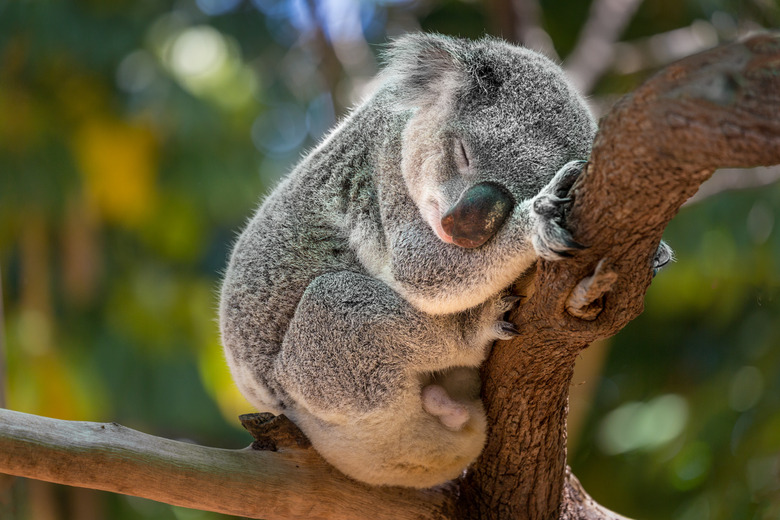The Australian Wildfires Were Really, Really Bad For Koalas
The recent Australian wildfires were tough on one of the country's most beloved and recognizable animals – so tough that some conservation experts are hoping koalas get named as an endangered species.
The lovable little creatures weren't doing so hot before the fires. But the devastating fires brought about a whole new level of destruction. Experts are still collecting data, and numbers are all over the place, but they believe that at least one-third of the population of koalas in New South Wales are gone. In areas where the burns got really bad, as many as 70% of the koalas in those areas may have died.
It's partly because koalas are a little slow. When danger strikes, they're among the last animals to get moving. Plus, they tend to live in eucalyptus trees, which burn quicker than others. All in all, the fires spelled doom and gloom for the koalas of Australia.
Who Gets to Be Called Endangered?
Who Gets to Be Called Endangered?
That depends. Koalas were already projected for extinction by 2050. If that sounds bad to you, you're not going to like this: About 1 million other plants and animals that exist today are also projected to be wiped out in the coming decades, according to a recent UN report.
So who decides which of those animals we get to protect? There are a few different factors at play. First, the International Union for Conservation of Nature conducts frequent studies to figure how many of any given animal, plant or fungi is left on this planet, and whether the population of that species has a good or bad chance of a healthy population going forward. Then, they place each into one of nine categories.
The first is "least concern," which means populations are healthy and thriving. Got a thing for black bears and flamingos? You're in luck – both are on the current list of animals of least concern. In the middle of the list are three different categories for groups facing extinction: vulnerable, endangered and critically endangered. Vulnerable animals like African elephants face a high risk of extinction, while critically endangered animals like the black rhino face an extremely high risk of being wiped out.
At the end of the list are the animals who are already gone, like the golden toad and woolly mammoth.
These lists can be fluid. Take the panda – once listed as endangered, it's now vulnerable. That means it's still facing extinction, but thanks to massive efforts from China to restore bamboo forests, their numbers are increasing.
But What About the Koalas …
But What About the Koalas ...
Of course, as may be the case of the koala, animals can move the other way on the list, too. It remains to be seen whether koalas will officially be added to the list of endangered species, and what kind of added protections they'll see going forward.
But they have the advantage of being cute, furry and beloved animals. That means they might get more resources from governments and advocacy groups who want to see populations thrive long into the future.
No matter the official status, though, we're all going to have to do a lot to protect our species going forward. If you've got a favorite animal, look into organizations like the World Wildlife Fund, Defenders of Wildlife, the International Fund for Animal Welfare or ones in your local area to see how you can help. Maybe you and some friends can help clean a local animal habitat that's been affected by pollution, or organize a small fundraiser to help raise funds to protect a favorite of yours that lives overseas.
Even just talking about them could help raise awareness and inspire others to act in a way that helps those creatures. Big or small, it's a good way to help make sure that animals like koalas stay a part of our lives for a long time.
Cite This Article
MLA
Dragani, Rachelle. "The Australian Wildfires Were Really, Really Bad For Koalas" sciencing.com, https://www.sciencing.com/how-wildfires-affect-koalas-13725591/. 13 March 2020.
APA
Dragani, Rachelle. (2020, March 13). The Australian Wildfires Were Really, Really Bad For Koalas. sciencing.com. Retrieved from https://www.sciencing.com/how-wildfires-affect-koalas-13725591/
Chicago
Dragani, Rachelle. The Australian Wildfires Were Really, Really Bad For Koalas last modified March 24, 2022. https://www.sciencing.com/how-wildfires-affect-koalas-13725591/
